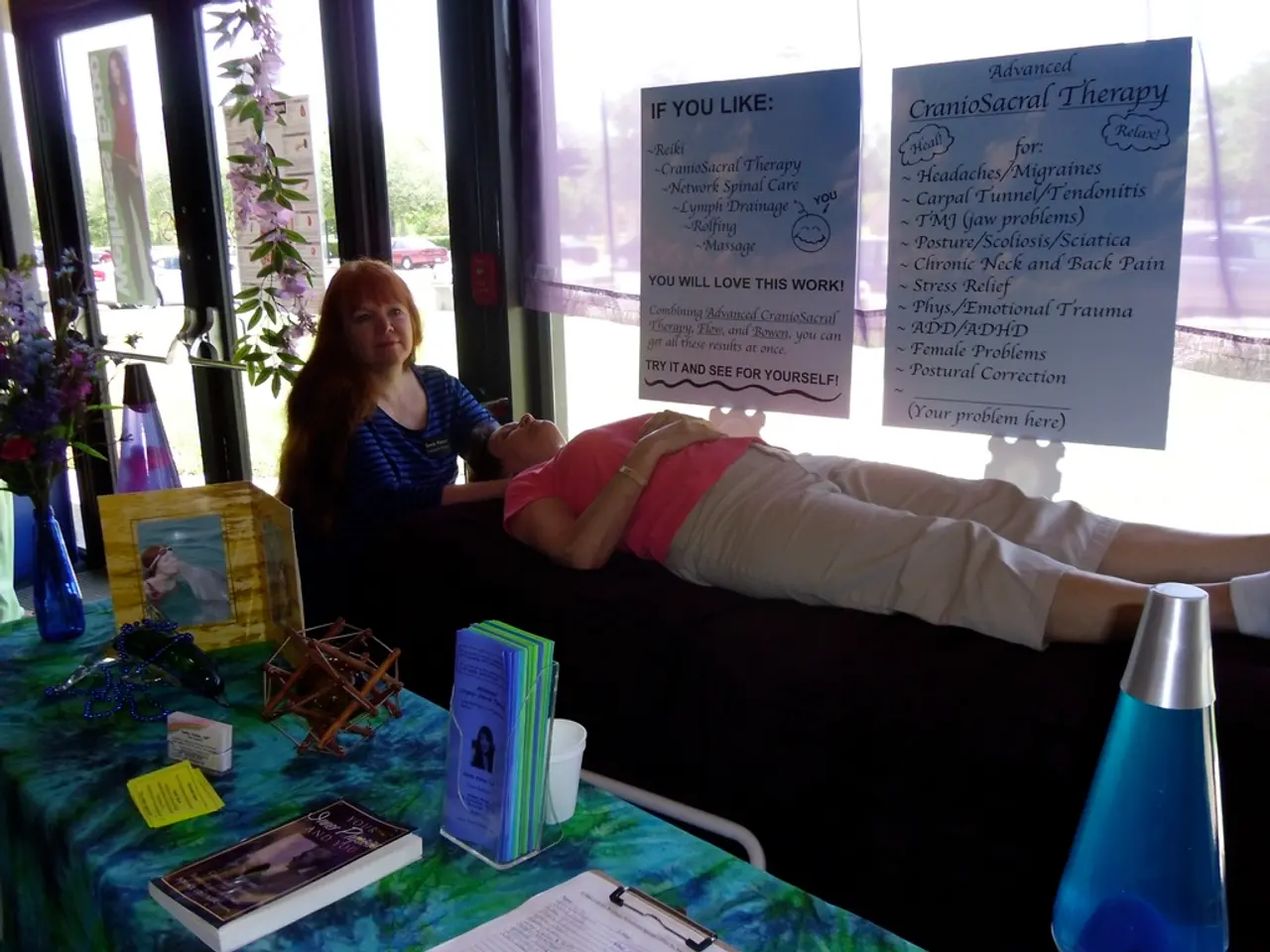Impact of Bipolar Disorder and PMS on Menstrual Cycles
Premenstrual syndrome (PMS) and its severe form, premenstrual dysphoric disorder (PMDD), can have a significant impact on a person's quality of life and relationships. For individuals with bipolar disorder (BD), these conditions may worsen symptoms, leading to increased mood instability, including hypomania, mania, depression, and sometimes psychosis during the premenstrual and menstrual phases.
Women with bipolar disorder are more prone to PMS and PMDD, experiencing stronger mood swings and symptom exacerbation in the premenstrual phase compared to women without BD. Hormonal changes affecting neurotransmitter systems and brain regions, such as the amygala and prefrontal cortex, are hypothesized to underlie this cyclical mood destabilization.
In managing both PMS/PMDD and bipolar disorder together, a multimodal treatment approach is recommended. Mood stabilizers, such as lithium and valproate, and atypical antipsychotics are commonly used to manage bipolar symptoms, helping to stabilize mood swings exacerbated by hormonal changes. For premenstrual symptoms, selective serotonin reuptake inhibitors (SSRIs) have efficacy in PMDD but may require careful monitoring in bipolar patients, as SSRIs alone can sometimes trigger mania; combining SSRIs with mood stabilizers is often necessary.
Hormonal treatments, such as oral contraceptives or gonadotropin-releasing hormone (GnRH) analogs, may reduce PMS/PMDD symptoms by suppressing ovulation and hormonal fluctuations. However, these treatments also require caution due to potential mood effects in BD patients. Integrated psychiatric and gynecological care is recommended to tailor therapies safely, particularly around pregnancy and postpartum periods where both illness risks and medication concerns are high.
Psychotherapy, stress reduction techniques, and lifestyle modification supporting stable circadian rhythms and hormone balance can complement pharmacological strategies. Yoga, massage, meditation, and journaling may be effective stress relievers for some people with PMS and PMDD. A good night's sleep may also help prevent moodiness and anxiety for people with PMS and PMDD.
Calcium and vitamin B6 have evidence for relieving PMS and PMDD symptoms. Over-the-counter pain relief medications such as ibuprofen, naproxen, and aspirin can help manage physical symptoms like swollen or tender breasts, bowel changes, bloating, cramping, headache, clumsiness, lower tolerance of noises or lights.
It is important to note that selective serotonin reuptake inhibitors (SSRIs) such as citalopram, escitalopram, fluoxetine, paroxetine, and sertraline should generally not be used in people with BD due to the risk of causing manic episodes.
Approximately 2.8% of adults in the United States live with BD, and 15-27% of women with BD experience PMDD. PMS and PMDD are caused by hormone fluctuations during a person's menstrual cycle. Mental and emotional symptoms of PMS and PMDD include irritability, tiredness, sleep pattern changes, appetite changes, trouble with concentration, tension or anxiety, depression or sadness, changes in mood, decreased libido, and more.
In conclusion, managing both PMS/PMDD and bipolar disorder requires a comprehensive, personalised approach that takes into account the unique challenges posed by hormonal fluctuations. Close clinical supervision is crucial to ensure the safety and effectiveness of treatments.
Women with bipolar disorder may encounter increased severity of premenstrual syndrome (PMS) and premenstrual dysphoric disorder (PMDD), due to the cyclical mood destabilization triggered by hormonal changes. A multimodal treatment approach, combining pharmacological strategies and lifestyle modifications, can help manage both conditions. Selective serotonin reuptake inhibitors (SSRIs) may be effective for PMDD, but require careful monitoring in bipolar patients due to the potential risk of manic episodes. Hormonal treatments may reduce PMS/PMDD symptoms, but require caution due to potential mood effects in BD patients. Psychotherapy, stress reduction techniques, and lifestyle modifications can complement pharmacological strategies, and may include practices like yoga, massage, meditation, journaling, and maintaining a good night's sleep. Vitamins like calcium and vitamin B6, as well as over-the-counter pain relief medicines, can also provide relief from PMS and PMDD symptoms.




